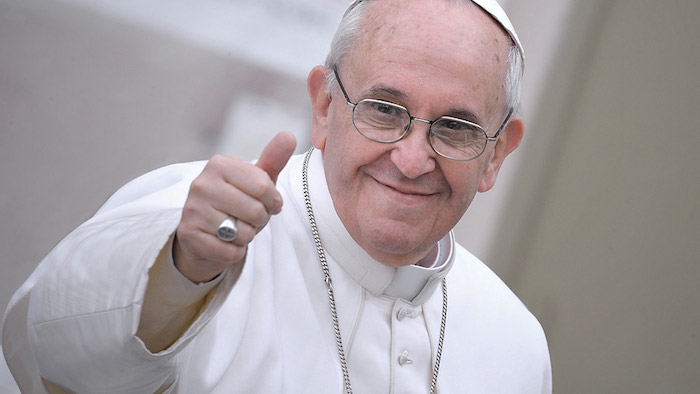.

In his address to the summer course participants, Pope Francis focused on the importance of cultural diversity in scientific research. Noting the diverse provenance of the participants, he said their desire to discover the truth of the cosmos will lead them to the Creator.
“God’s creation, and our own place in it, is shared by men and women of very diverse cultural and religious backgrounds. All of us dwell under the same sky. All of us are moved by the beauty revealed in the cosmos and reflected in the study of the heavenly bodies and substances. In this sense, we are united by the desire to discover the truth about how this marvellous universe operates; and in this, we draw ever closer to the Creator.”
The Holy Father also reminded them that the mission of the Vatican Observatory, founded by Pope Leo XIII in 1891, is to employ “new scientific instruments as well as the tools of dialogue and cooperation with other centres of research”.
This fifteenth installment of the summer course is concerned with the study of water in our solar system and beyond, and the Pope noted its beauty and importance.
“From the tiniest snowflake to the greatest waterfalls, from lakes and rivers to immense oceans, water fascinates us by its power and, at the same time, its simplicity. The great civilizations originated beside rivers, and in our day access to pure water continues to be an issue of justice for the human race, for rich and poor alike.”
He concluded his remarks by reminding them of the commitment required by scientific research, which can also be a source of great joy. He said, “May you always find joy in your research and share the fruit of your studies with humility and fraternity.”
The official translation of Pope Francis’ address can be found below:
Greeting of His Holiness Pope Francis to Participants in the Summer Course of the Vatican Observatory
I am happy to welcome you, the professors and students of the summer course organized by the Jesuit Fathers of the Vatican Observatory. This impressive representation of persons from various countries and different cultures is a sign of how diversity can greatly enrich scientific research. I thank Father Paul Mueller, the Vice-Director of the Observatory, and the professors who generously accompany you young astronomers in the complex and exciting activity of studying the universe, the incomparable gift of the Creator. My gratitude goes also to those who through their generosity have contributed to make this international course possible.
Pope Leo XIII established the Vatican Observatory in 1891, exactly 125 years ago, not least to confirm the Church’s support for “true and solid science, whether human or divine” (Motu Proprio Ut Mysticam, 14 March 1891). Over the years, the Observatory has sought to fulfil its original purpose by employing new scientific instruments as well as the tools of dialogue and cooperation with other centres of research.
Your presence at this summer school is also a sign that the desire to understand the universe, God’s creation, and our own place in it, is shared by men and women of very diverse cultural and religious backgrounds. All of us dwell under the same sky. All of us are moved by the beauty revealed in the cosmos and reflected in the study of the heavenly bodies and substances. In this sense, we are united by the desire to discover the truth about how this marvellous universe operates; and in this, we draw ever closer to the Creator.
It is timely and providential that this fifteenth summer school is concerned with the study of water in the solar system and elsewhere. We all know how essential water is here on earth: for life, for us human beings and for our work. From the tiniest snowflake to the greatest waterfalls, from lakes and rivers to immense oceans, water fascinates us by its power and, at the same time, its simplicity. The great civilizations originated beside rivers, and in our day access to pure water continues to be an issue of justice for the human race, for rich and poor alike.
Dear brothers and sisters, scientific research demands great commitment, yet can sometimes prove lengthy and tiresome. At the same time, it can, and should be, a source of deep joy. I pray that you will be able to cultivate that interior joy and allow it to inspire your work. Share it with your friends, your families and your nations, as well as with the international community of scientists with whom you work. May you always find joy in your research and share the fruit of your studies with humility and fraternity.
With these prayerful good wishes, I cordially invoke the Lord’s abundant blessings upon you and your work. And I ask you please to remember me in your prayers. Thank you.
Quelle: Vatican Radio
6301 Views
